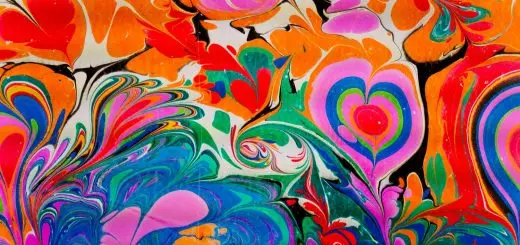Exploring Roman Mythology: Ancient Tales

Looking for more amazing products? Check out our online store and explore our collection here! Happy shopping!
Before diving in, please note: This post is for informational purposes only. If you’d like to know more about how we approach topics, feel free to check out our friendly Disclaimer Page.
Hey there, amazing readers! 
We’re committed to delivering quality posts, and your support (even just sticking around despite the ads) means everything to us. So, bear with us, and thanks for helping us keep the good vibes rolling. Now, on to the fun stuff!
TRANSLATE BUTTON AT THE END OF THE ARTICLE
A Quick Overview
Roman mythology is a rich tapestry of ancient beliefs, traditions, and legends that have influenced Western culture for centuries.
Drawing inspiration from the Greek pantheon, Roman mythology features a diverse cast of gods, goddesses, heroes, and mythical creatures that captivate the imagination.
From tales of love and betrayal to epic battles and heroic feats, Roman mythology offers a glimpse into the ancient world and the beliefs of its people.
Introduction to Roman Mythology
Roman mythology encompasses the beliefs and stories of the ancient Romans, who drew heavily from Greek mythology but also added their own unique twists and interpretations.
The Romans believed in a pantheon of gods and goddesses who controlled various aspects of the world, from the sun and moon to love and war.
These deities were often depicted in human form and were worshipped through elaborate rituals and ceremonies.
Origins and Evolution of Roman Mythology
The origins of Roman mythology can be traced back to the early days of the Roman Republic, when the Romans adopted and adapted many of the myths and legends of the Greeks.
Over time, Roman mythology evolved to reflect the values and beliefs of Roman society, with an emphasis on duty, honor, and loyalty.
As Rome expanded its empire and came into contact with other cultures, the myths and stories of the Romans continued to evolve and change.
Major Gods and Goddesses in Roman Mythology
The Roman pantheon was comprised of a wide array of gods and goddesses, each with their own unique powers and domains.
Some of the major deities in Roman mythology include Jupiter, the king of the gods; Juno, the queen of the gods and goddess of marriage; Venus, the goddess of love and beauty; Mars, the god of war; and Minerva, the goddess of wisdom and craftsmanship.
Prominent Heroes and Heroines in Roman Myths
In addition to the gods and goddesses, Roman mythology also features a number of prominent heroes and heroines who played key roles in various myths and legends.
These include figures such as Aeneas, the legendary founder of Rome; Romulus and Remus, the twin brothers who were said to have founded the city of Rome; and Hercules, the mighty hero known for his incredible strength and bravery.
Creation Myths in Roman Mythology
Like many ancient cultures, the Romans had their own creation myths that explained the origins of the world and humanity.
One such myth involves the god Saturn, who was said to have ruled over a golden age of peace and prosperity before being overthrown by his son Jupiter.
Another creation myth involves the goddess Venus, who was said to have emerged from the sea foam and given birth to the first humans.
Roman Mythological Creatures and Monsters
Roman mythology is filled with a variety of mythical creatures and monsters that add a sense of wonder and mystery to the stories.
These include creatures such as the centaurs, half-man, half-horse beings known for their wild and unpredictable nature; the harpies, winged monsters with the faces of women and the bodies of birds; and the chimera, a fearsome creature with the head of a lion, the body of a goat, and the tail of a serpent.
Roman Mythological Deities and Their Roles
Each deity in Roman mythology had specific roles and responsibilities that governed various aspects of the world.
For example, Jupiter was the god of the sky and thunder, while Neptune was the god of the sea.
Venus was associated with love and beauty, while Mars was the god of war.
Each deity was worshipped and honored in temples and shrines throughout the Roman Empire.
Famous Roman Mythological Stories and Legends
Roman mythology is filled with a wide range of stories and legends that have captivated audiences for centuries.
Some of the most famous include the tale of Romulus and Remus, the founding of Rome; the story of Aeneas and his journey to found the city of Troy; and the adventures of Hercules as he battles monsters and completes his famous labors.
These stories have inspired countless works of art, literature, and music over the years.
Influence of Roman Mythology on Art and Literature
The stories and characters of Roman mythology have had a profound influence on art, literature, and culture throughout history.
From the epic poems of Virgil to the sculptures of Michelangelo, Roman mythology has inspired some of the greatest works of Western civilization.
Artists and writers continue to draw upon the themes and imagery of Roman mythology to create new and innovative works that resonate with audiences today.
Comparing Roman Mythology with Greek Mythology
While Roman mythology shares many similarities with Greek mythology, there are also key differences that set the two apart.
For example, the Roman pantheon includes many of the same gods and goddesses as the Greek pantheon, but with different names and attributes.
The Romans also placed a greater emphasis on duty, honor, and loyalty in their myths, reflecting the values of Roman society.
Despite these differences, both Roman and Greek mythology continue to be studied and celebrated for their enduring influence on Western culture.
Modern Interpretations of Roman Myths
In recent years, there has been a resurgence of interest in Roman mythology as people seek to reconnect with the ancient beliefs and stories of the past.
Modern interpretations of Roman myths can be found in literature, film, and television, with writers and filmmakers putting their own unique spin on classic tales.
These reinterpretations often explore themes of power, ambition, and the human experience, resonating with audiences in new and unexpected ways.
Exploring Roman Mythology Sites and Artifacts
For those interested in delving deeper into the world of Roman mythology, there are a number of sites and artifacts that offer a glimpse into the ancient beliefs and traditions of the Romans.
From the ruins of the Roman Forum in Rome to the temples of Pompeii, there are plenty of opportunities to explore the rich history and mythology of the ancient Romans.
Museums around the world also house a wealth of artifacts and artworks that showcase the myths and legends of Rome, providing a fascinating window into the past.
Conclusion
Roman mythology is a fascinating and complex tapestry of ancient beliefs, stories, and legends that continue to captivate audiences today.
From the gods and goddesses of the Roman pantheon to the heroes and heroines of epic tales, Roman mythology offers a glimpse into the values and beliefs of the ancient Romans.
As we continue to explore and interpret these myths in the modern world, we gain a deeper understanding of the cultural legacy left behind by this ancient civilization.
Whether through art, literature, or archaeology, the myths of Rome continue to inspire and intrigue us, connecting us to a distant past that still holds relevance in our lives today.

The Enlightenment Journey is a remarkable collection of writings authored by a distinguished group of experts in the fields of spirituality, new age, and esoteric knowledge.
This anthology features a diverse assembly of well-experienced authors who bring their profound insights and credible perspectives to the forefront.
Each contributor possesses a wealth of knowledge and wisdom, making them authorities in their respective domains.
Together, they offer readers a transformative journey into the realms of spiritual growth, self-discovery, and esoteric enlightenment.
The Enlightenment Journey is a testament to the collective expertise of these luminaries, providing readers with a rich tapestry of ideas and information to illuminate their spiritual path.
Our Diverse Expertise
While our primary focus is on spirituality and esotericism, we are equally passionate about exploring a wide range of other topics and niches 

To ensure we provide the most accurate and valuable insights, we collaborate with trusted experts in their respective domains 
Our blog originally focused on spirituality and metaphysics, but we’ve since expanded to cover a wide range of niches. Don’t worry—we continue to publish a lot of articles on spirituality! Frequently visit our blog to explore our diverse content and stay tuned for more insightful reads.
Hey there, amazing reader! 
Check out our store here and take a peek at some of our featured products below! Thanks for being awesome!












